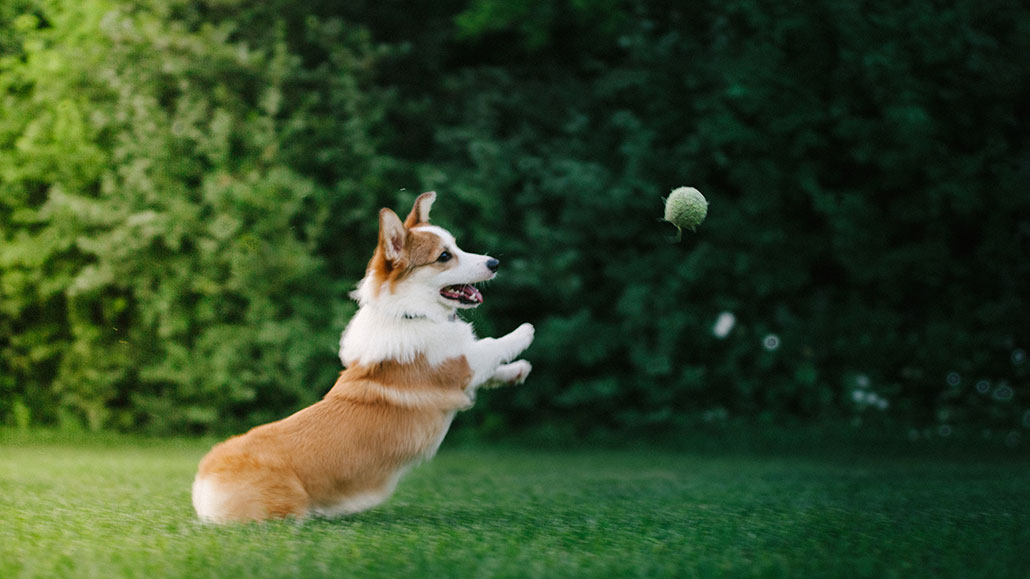Let’s learn about dogs
Our canine best friends have lots of amazing talents

Fetch! Dogs have been with humans for thousands of years. Over time, they’ve learned a lot of tricks.
Bryan Miguel/Royalty-free/Getty Images Plus
Dogs are wonderful companions. They’re with us in our toughest times. Some can understand what we say, and even how we say it. They’re always there to celebrate when you come home — even if you’ve only been gone for a few minutes.
In fact, dogs are such great friends that humans probably domesticated them not once, but twice. We were probably helped by our meat-eating ways. Extra meat in winter made for a great treat for wolves. Over time, they became dogs. Now, those dogs come in many shapes and sizes. The way we breed dogs has even shaped their brains. Scientists are now studying doggie DNA to learn more about how different dog breeds behave and whether their genes may make some more likely to get sick.
But our pups are more than just friends. Early humans bred dogs to help them hunt. Now, we use dogs’ sensitive noses to track invasive species and lost people and even to smell out someone infected with a virus.
Want to know more? We’ve got some stories to get you started:
Breeding has given different dogs distinct brain shapes: An analysis of the shapes of brains in different dog breeds shows how humans have altered the animals’ brain anatomy. (9/30/2019) Readability: 7.4
Conservation is going to the dogs: Scientists are now training dogs to help track rare, elusive — and sometimes invasive — plants and animals. (4/2/2020) Readability: 6.3
To figure out your dog’s ‘real’ age, you’ll need a calculator: What’s your dog’s human-equivalent age? Just multiply how old it is times seven, right? Uh, no. And here’s why. (8/12/2020) Readability: 6.6
Explore more
Explainer: How DNA testing works
The turning of wolves into dogs may have occurred twice
Good dog! Canine brains separate tone of speech from its meaning
What we can — and can’t — learn from our pets’ DNA
Viral scents? Dogs sniff out coronavirus in human sweat
Harsh Ice Age winters may have helped turn wolves into dogs
Activities
Think dogs have dirty mouths? Why not test it with science? You can take a swab to your pooch’s mouth, and another to your own, and see if one grows more bacteria than the other. Do you have more microbial variety? Does your dog? How fast do bacteria grow?







